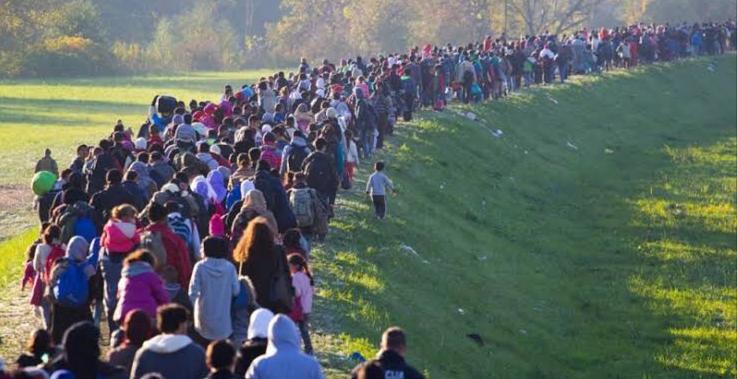Poland, supported by Hungary, called for a revision of plans to reform asylum rules in the European Union (EU) at a two-day meeting of the bloc’s leaders in Brussels, resulting in a stand-off.
Under the plans, all member states are to take in some asylum seekers arriving at the bloc’s external borders. Countries that do not want to welcome migrants would have to pay compensation.
Poland, which together with Hungary did not support the proposal three weeks ago but was outvoted by the majority of EU countries, demanded that the reception of asylum seekers should be voluntary, according to a statement seen by dpa.
Hungary had also voiced opposition to the reform plans ahead of the EU summit.
A political adviser to Hungarian Prime Minister Viktor Orbán wrote on Twitter on Thursday night that “the Polish-Hungarian duo fights and resists together.”
Leaders parted late on Thursday night without adopting a joint statement expressing sorrow over the loss of life in the Mediterranean and taking stock of the bloc’s migration policies as planned.
The issue is to be back on the agenda on Friday.
In return for distributing asylum seekers across the bloc, countries at the EU’s external borders are to register arriving migrants and give them the opportunity to apply for asylum.
At the same time, several other asylum rules are to be tightened.
Migrants from countries considered as safe with no right to stay in the EU are to be obliged to stay at reception facilities until they are sent back.
Arriving at the summit, German Chancellor Olaf Scholz praised the reforms as “a major breakthrough.”
Scholz said the changes were something the EU needed for a long time and “demands something from everyone.”
The German chancellor was meeting his EU counterparts nearly three weeks after the agreement to change the bloc’s asylum rules was reached, against the wishes of Hungary and Poland.
Related Articles
Ahead of the summit, Polish Prime Minister Mateusz Morawiecki said his country and Law and Justice Party (PiS) still reject the solidarity mechanism.
“The PiS government will certainly not agree to any experiments or blackmail regarding the admission of illegal immigrants,” he said.
The difficult topic of migration was on the agenda as the number of migrants and asylum seekers arriving to the EU rose further.
In 2022, 881,200 first-time applications for asylum were made in the EU, an increase of 64 per cent compared with 2021, according to the EU statistics agency, Eurostat.
EU countries still have to agree with the European Parliament on the details of the asylum reform.
European Parliament President Roberta Metsola called for humanity in the debate on migration, speaking on the sidelines of the EU summit in Brussels.
No man, woman or child should die trying to reach Europe in European waters, she said, alluding to numerous deadly boat accidents.
“That has to be the absolute point that we never forget when we talk about numbers, because we tend to become desensitised when the numbers get bigger,” said Metsola.
Around 2,400 people died crossing the Mediterranean in 2022, according to UN body the International Organisation for Migration (IOM).
Recently hundreds of migrants who were trying to cross from Libya to Italy drowned when their boat sank off the coast of Greece.
EU leaders also discussed plans to support Tunisia with €900 million ($978.5 million) to alleviate the country’s economic crisis and reduce the number of people leaving for the bloc.
Tunisia is currently both a major country of origin and a major transit country for migration across the Mediterranean to the EU.
The European Commission had proposed binding the aid package to reforms demanded by the International Monetary Fund, while Italy wants less stringent requirements.








